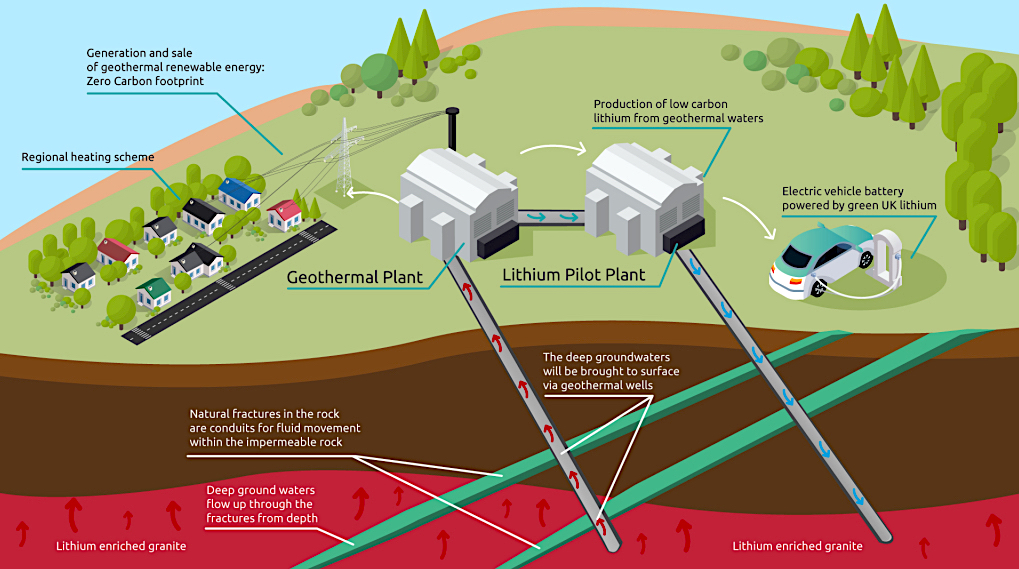Cornish Lithium will begin its desk-based exploration program to start identifying potential geological targets for later research. It says that physical exploration work is not anticipated for at least four years.
The company is targeting four sites across the north and south coasts of Cornwall, where it plans to potentially extract lithium using a low-impact and environmentally responsible process. Mining lithium from geothermal water allows using the same hot rock water to power up turbines, generating zero-carbon electricity and heat.
The £4 million ($5.2m) project will trial direct lithium extraction (DLE) technology, which removes dissolved lithium compounds from water without the need for the large evaporation ponds, such as those used in South America’s salt flats.

Lithium from Chile and Argentina is of higher grade than geothermal sources, but concerns over the sustainability of those operations are weighing on miners’ plans. Giants including Albemarle (NYSE: ALB) and SQM (NYSE: SQM) continue to be questioned as they extract their product from pools of brine beneath Chile’s Atacama desert, the world’s driest.
“Lithium has an important and exciting role to play in helping unlock an electric economy and deliver the UK’s commitment to net zero carbon emissions by 2050,” Nick Everington, Portfolio Manager at The Crown Estate, said in the statement.
Cornish Lithium recently decided to also begin exploring for other battery metals, such as cobalt and copper.
The area around St. Day and Gwennap was the richest copper-producing region in Cornwall (and the world) in the 18th and early 19th centuries.
The junior revealed in 2018 that it needed about £5 million ($6.2m) to go ahead with its plans. Since then, it has secured more than £2m ($2.5m) from private backers and it’s already aiming at listing on the London Stock Exchange by 2022.
Good timing
Cornish Lithium’s efforts come amid the British government’s push to attract more investment into battery factories in order to protect the future of local car plants.
Figures released on Wednesday by the Society of Motor Manufacturers and Traders, the local industry body, showed new car sales in the UK fell by almost 30% to 1.63 million in 2020, the biggest annual fall since 1943.
UK carmakers have three years to source local electric car batteries, following the Brexit free trade deal inked in last year. Under the agreement, all European trade in cars and parts will continue to be free of tariffs or quotas after the Brexit transition period ended on Dec. 31, as long as they contain enough content from either UK or EU factories.
Batteries will at first be allowed to have up to 70% of materials from countries outside the EU or the UK. From 2024 onwards, however, that requirement will tighten to 50%.




